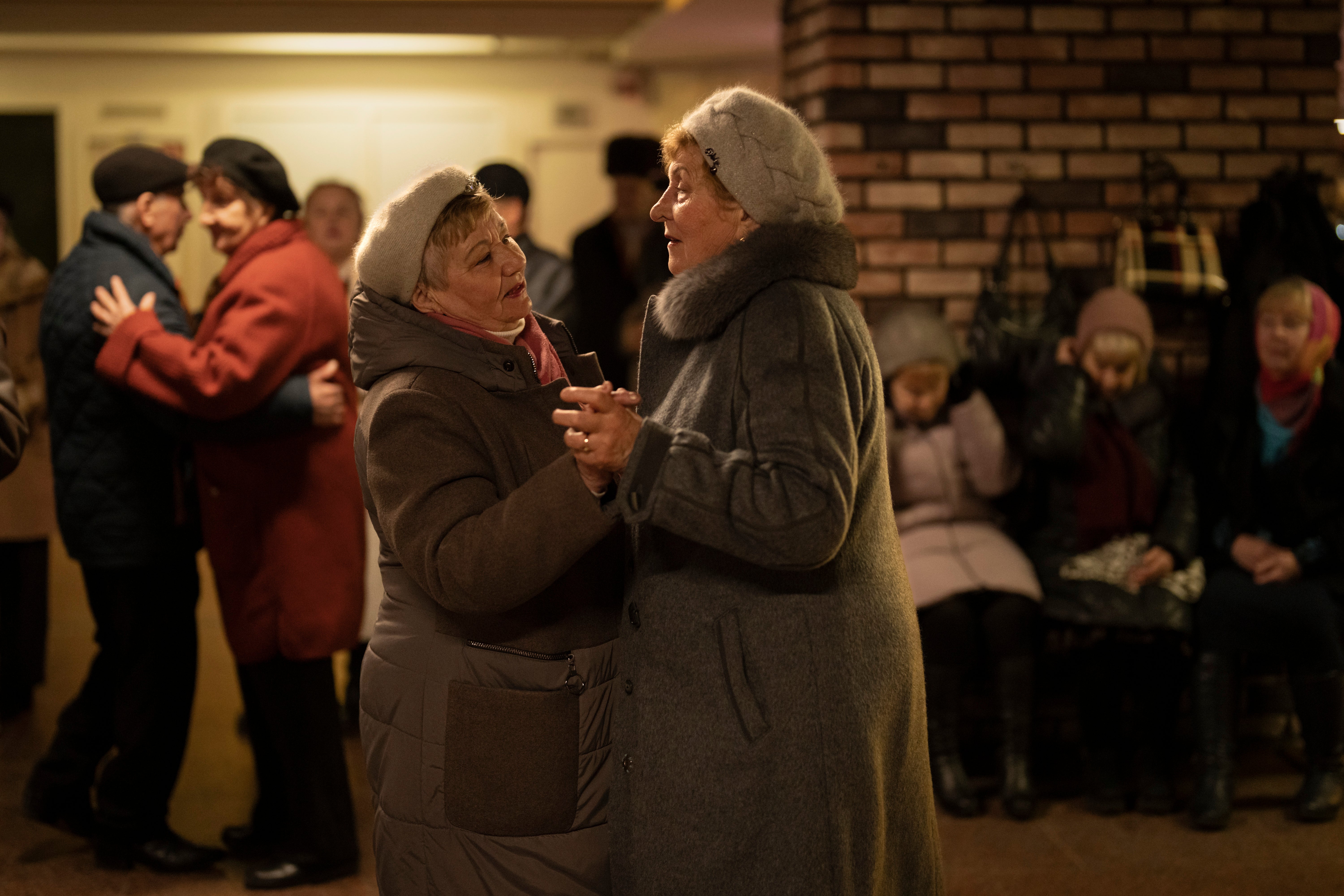The universal – and horrible – truth: War disproportionately affects women and girls
After months reporting the brutal conflict in Ukraine, Bel Trew reflects on the impact of war on women


War disproportionately affects women and girls. It is a universal, horrible truth.
Even when the guns go silent the devastating impact of conflict will always continue to unfairly rage through the lives of women and girls more so than men.
This is such a recognised fact that in 2000 the United Nations Security Council adopted a landmark resolution acknowledging this and warning of the inevitability of gender-based violence like rape. The resolution also pointed out that while war is almost exclusively started by men, women are rarely at the negotiating table.
The sad truth is that after a year of President Putin’s bloody invasion, Ukraine is no exception to this grim global truth. And this is not just being felt by Ukrainian women and girls but also by women and girls throughout the world because of the devastating impact Moscow’s war has had on the global economy and supply chains.
In Ukraine, the UN has repeatedly warned that the war and the subsequent mass displacement it caused has significantly increased the risk of domestic violence, trafficking and exploitation.
Almost immediately after we saw Europe’s largest refugee crisis in generations unfurl, sex rings began picking off vulnerable women as they escaped to what they thought was safety.
Ukraine’s border crossings are still lined with posters warning female refugees of the dangers they could face.
The economic impact of the war is also devastating. Ninety per cent of the 7.9 million people who are internally displaced within Ukraine are women. That means they are losing their income in disproportionately high numbers and so living in destitute conditions.
All through that they are also at risk of rape at the hands of Russian soldiers and their proxies. The European Union has even sanctioned particular Russian commanders over “systematic sexual violence”.
The Ukrainians have said Russia has used the rape of its women as a “weapon of war”. The testimonies I have gathered over the last year have been chilling.
In October I spoke to Olga, a 50-year-old call centre operator at the fire department in Balakiya, a small town in northeast Ukraine that had been under Russian occupation for months.
She was arrested alongside several other women for being pro-Ukrainian. Held in a police station the Russians had commandeered, she spent her nights hearing the screams of women being gang-raped by Chechen soldiers in the interrogation room one floor above her tiny cell.
“I could hear them shouting ‘come on, you have a go next’,” she told me quietly. “They threatened all of us with rape during the day but the torture and violence always took place at night.”
This echoed other stories in other areas that were also occupied for several weeks.
Last summer, one Ukrainian woman called Maria I met in Trostyanets, about 200km northwest of Balakiya, told me the soldiers abducted her husband, who is still missing today, and then tried to rape her. The only reason they gave up was because of a disability she had, she explained.
The devastation of the war has rippled well past the borders of Ukraine. A September UN policy paper found that this war had induced such high global price hikes and supply shortages that it has widened the gender gap for food security throughout the planet.
That means women in vulnerable areas like the Middle East (that relies on grain and food exports from Ukraine) have had to reduce their food intake more so than men.
This has subsequently seen “alarming increases” in women being forced to exchange sex for food and survival. It has seen a surge in early marriage and forced marriages.
And so, even if the war stops tomorrow – the aftershocks of this will continue to ripple.
That’s not to say that in Ukraine women are passive victims. According to Ukraine’s deputy minister of defence Hanna Maliar, there are 50,000 servicewomen in the armed forces, and 5,000 of them are on the front lines.
She believes that Ukraine today has one of the higher percentages of women in its army, compared to Nato member states.
It seems obvious to me that this would be the case, but people are often surprised to learn that I have met several female soldiers, frontline medics and activists who have been disappeared and tortured by Russians, and women leading some of the most dangerous evacuation missions to rescue civilians from the worst of the fighting.
It makes sense – women are fighting for their survival. It is not an exaggeration to say the war in Ukraine is a war on women and girls globally.
And the damage has been done. Even if Russia withdraws today, even if its missile launchers are silenced, the impact of this devastation will continue to be felt for a generation of women to come.

Join our commenting forum
Join thought-provoking conversations, follow other Independent readers and see their replies